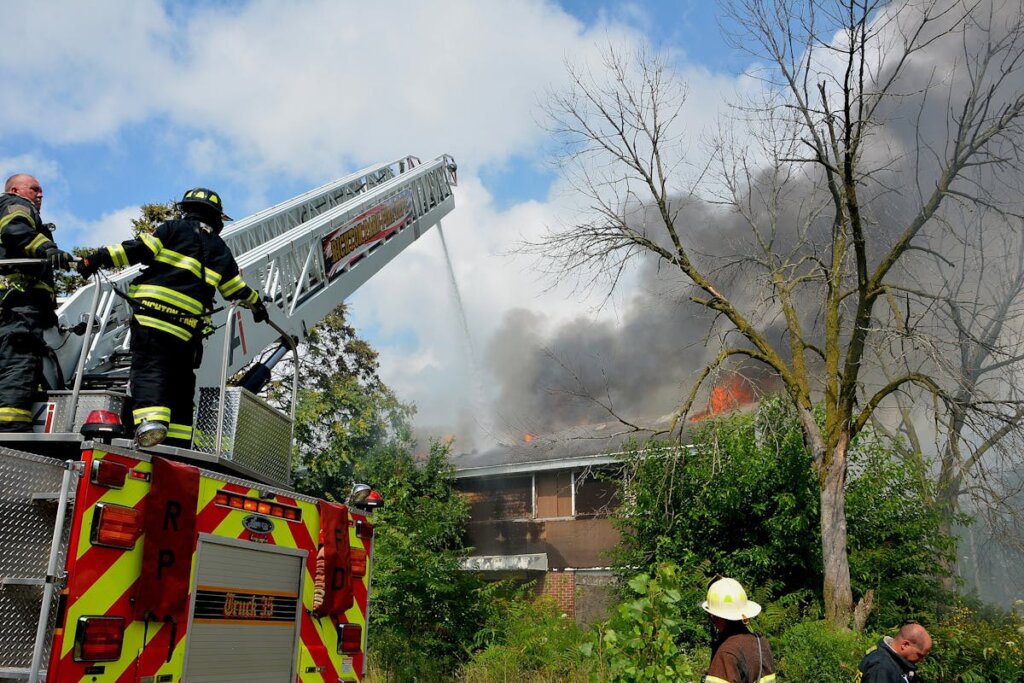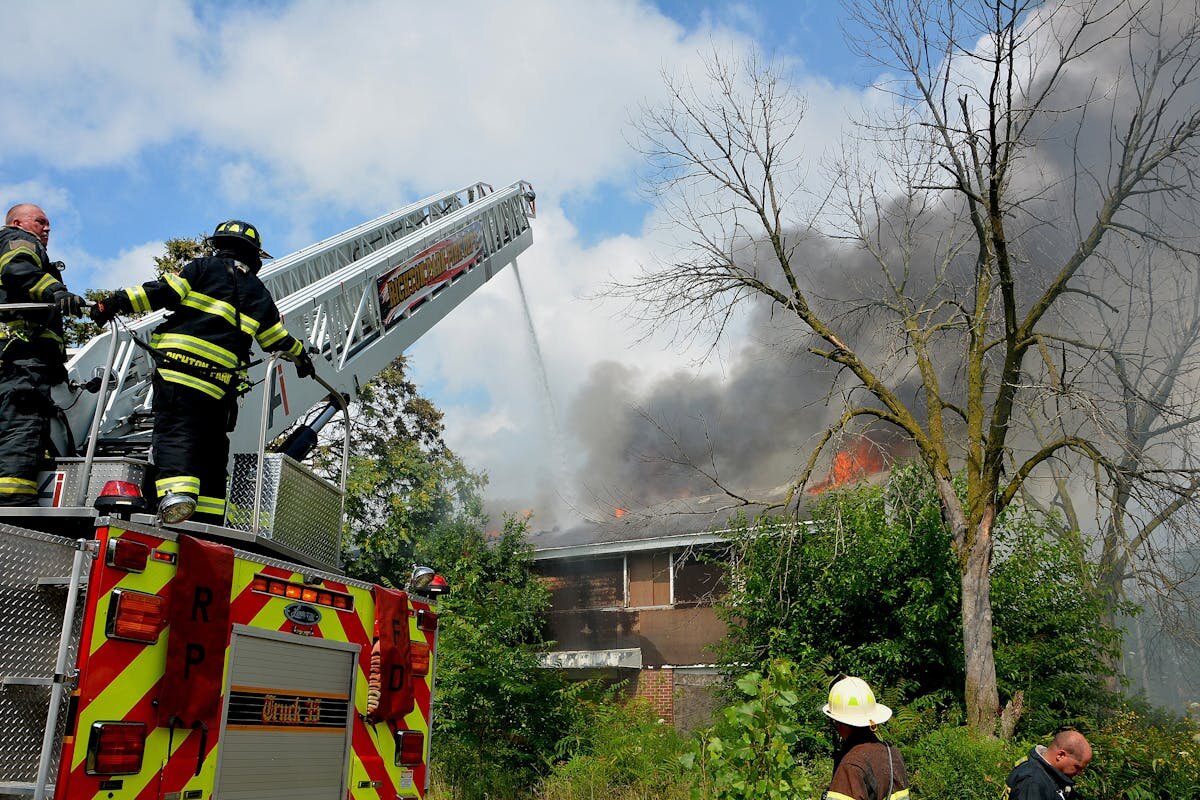
A house fire is a devastating event that no homeowner ever wants to experience. The emotional shock, the loss of belongings, and the overwhelming cleanup afterward can leave you unsure of what to do next. Knowing what to do after a fire in your house helps you move from panic to action, regain control, and take meaningful steps toward recovery.
Once the flames are extinguished, you’re left with the reality of damage, insurance claims, and critical decisions. From the moment you’re allowed back into your home, every move you make can impact your financial and personal outcome.
Taking the right actions immediately after the fire will protect your home from further damage, speed up the recovery process, and potentially salvage much of what’s left.
Prioritizing Safety After the Fire
The first and most important step is to ensure the safety of everyone involved. After a fire, hidden dangers like structural weaknesses, live wires, or lingering smoke can pose serious health risks. Do not re-enter your home until the fire department says it is safe to do so. Even after clearance, take extra caution when navigating the damaged property.
If anyone was injured, even mildly, seek medical care immediately. Smoke inhalation and burns may seem minor at first but can become serious if left untreated. You should also make temporary living arrangements as most fire-damaged homes are not safe for occupancy until repairs are made and utilities are restored.
Securing the Property from Further Damage
After making sure everyone is safe, the next step is to protect what remains of your property. Damage from a house fire doesn’t stop once the fire is out. Rain, wind, and vandalism can worsen the situation if your home is not properly secured. Broken windows, compromised doors, and exposed roofs are open invitations for more damage.
Covering these openings with tarps or plywood helps keep out weather elements and trespassers. This small step can prevent additional loss and shows your insurance company that you took reasonable action to preserve the property.
Contacting Your Insurance Provider Immediately
One of the most important things to do after a house fire is to notify your insurance company right away. Your homeowners insurance will play a vital role in helping you recover from the damage. Start your claim process as soon as possible, as time is crucial for documenting losses and getting assistance for temporary housing, repairs, or replacement of belongings.
Take photographs of every affected area and damaged item before making any changes. Provide your insurance adjuster with these visuals and any receipts or documentation you can gather. Being thorough and prompt increases the chances of a fair payout. Ask your insurer what expenses they will cover, including lodging, meals, and essential items if you cannot live in your home during restoration.
Waiting for Utilities to Be Cleared
Reconnecting gas, electricity, or water too early can cause more harm than good. Fire often damages hidden areas like wiring, gas lines, or plumbing systems. Turning utilities back on without inspection can result in leaks, fires, or electrical shock.
Only a licensed professional should inspect and confirm that each utility is safe to use again. Follow all recommendations, even if it means staying out of the home longer. Protecting your family from secondary accidents is more important than rushing to return to normal.
Beginning the Fire Damage Restoration Process
Cleaning up after a fire is a complex task. Between smoke residue, water damage from firefighting efforts, and soot coating every surface, it’s usually too much for one person to handle.
The most effective way to restore a home after a fire is to work with a professional fire damage restoration team. These professionals are trained to remove debris, extract water, clean smoke-damaged surfaces, and deodorize the home.
They also handle drying out walls and floors to prevent mold, which can develop quickly after water exposure. Getting the restoration process started as soon as possible helps prevent further deterioration of the structure and improves the odds of saving parts of the home. Acting quickly will also demonstrate to your insurance company that you are taking the necessary steps to recover.
Creating a Complete Inventory of Losses
As part of the insurance process and your personal records, begin creating a list of everything you lost in the fire. This inventory should include everything from large appliances and furniture to clothing and electronics. Try to recall and record as much detail as possible, including brand names, models, and approximate values.
If you have any old receipts, photographs, or credit card statements, gather those as well. This documentation supports your insurance claim and helps you estimate the full extent of your losses. A thorough inventory is one of the most important house fire recovery steps and will speed up reimbursement.
Deciding Whether to Rebuild or Sell
Once the cleanup is underway and your insurance claim is in progress, it’s time to consider your long-term options. Rebuilding your home might be the right path if you’re emotionally attached to it and the damage is manageable. However, in many cases, the cost, time, and emotional toll of rebuilding is more than homeowners want to endure.
Selling your fire-damaged house is a practical alternative, especially if you want to move on quickly. At Neighbor Joe, we help homeowners by buying houses in as-is condition, including those damaged by fire.
We understand the emotional and financial strain fire causes, and we offer a simple solution: a fair cash offer, fast closing, and no out-of-pocket costs. You don’t need to worry about restoration, cleaning, or staging your home for the market. We handle it all.
Updating Your Records and Notifying Authorities
As part of your recovery, make sure to inform the right agencies and service providers about the fire. This includes your local post office, so mail can be forwarded to your temporary address. Let your bank and credit card companies know about your change in residence.
Utility companies should be contacted to suspend or terminate services. You may also need to update your employer and your children’s schools if your temporary housing affects schedules.
Be sure to inform the town assessor or local tax authority. Fire damage may reduce your home’s assessed value, which could lead to a property tax adjustment.
Taking Care of Your Emotional Health
The aftermath of a house fire isn’t just physical; it’s deeply emotional. Many homeowners feel overwhelmed, depressed, or anxious after such a traumatic event. It’s important to recognize these feelings and get support. Talk with friends, family, or a licensed counselor. Support groups, churches, and local nonprofits may also offer assistance and community resources.
Your mental well-being is just as important as your home’s recovery. Don’t hesitate to reach out. You’re not alone.
Let Neighbor Joe Help You Start Fresh
If you’ve gone through a fire and don’t want to spend months repairing your home, Neighbor Joe is here to help. We buy fire-damaged houses in Connecticut as-is. You can sell your CT home quickly for cash to us and take care of all the details so you can move on without stress.
You won’t have to pay for repairs, cleaning, or commissions. Our goal is to give you an easy, respectful, and fast solution. Contact us today to get a no-obligation quote within 24 hours and decide whether selling is the right step for you.

